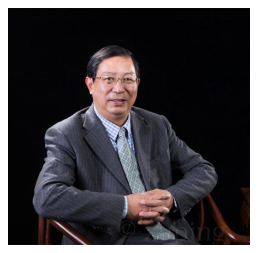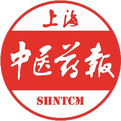
Individuals with a Yin deficiency (Yin xu) constitution exhibit two main characteristics: first, there is a deficiency of body fluids, leading to insufficient moisture, which can result in symptoms such as dry mouth and throat, constipation, and dry eyes. Second, the inability of Yin to restrain Yang heat can lead to manifestations of internal heat, such as a flushed complexion, hot palms and soles, irritability, and anger. For those with a Yin deficiency constitution, dietary therapy should focus on nourishing Yin and moistening dryness.

★
Recommended Recipe (1)
★
★
Winter Melon and Job’s Tears Duck Soup
Ingredients:1 duck (approximately 800 grams), 150 grams of winter melon, 75 grams of Job’s tears (Yi Yi Ren), 4 grams of dried tangerine peel (Chen Pi), 6 grams of salt, and a small amount of cooking wine.
Instructions:
(1) Clean the duck and cut it into large pieces; peel and clean the winter melon, cutting it into small pieces; rinse the Job’s tears and drain; wash the dried tangerine peel with warm water.
(2) Heat oil in a wok and fry the duck pieces until golden brown.
(3) Place the Job’s tears and dried tangerine peel in a clay pot, add about 3000 milliliters of water, and bring to a boil over high heat.
(4) Immediately add the lightly fried duck pieces, skim off any floating oil and blood foam, and add salt and cooking wine.
(5) Switch to low heat and simmer until the duck pieces are tender, then add the winter melon and bring to a boil again, simmering until the soup reduces to about 1500 milliliters.
(6) Serve the ingredients in a soup bowl, placing the winter melon at the bottom, arranging the duck pieces on top, and pouring the duck soup into another bowl to serve alongside.
Tip:Before cooking the duck, it should be cleaned and blanched or sautéed to remove any gamey taste and impurities; ensure that enough water is added at once without skimming or adding water during cooking to maintain the soup’s rich flavor.
Effects:This recipe nourishes Yin, clears heat, replenishes blood, and promotes fluid production, making it especially suitable for individuals with a Yin deficiency constitution. According to the Qing dynasty physician Wang Mengying in his “Dietary Records of Suixi Residence”: Duck meat nourishes the Yin of the five organs, clears heat from deficiency, and promotes fluid production. Thus, duck meat is an excellent food therapy for those with a Yin deficiency constitution.

★
Recommended Recipe (2)
★
★
Goji Berries and White Fungus Stew
Ingredients:15 grams of white fungus (Yin Er), 15 grams of goji berries (Gou Qi Zi), 100 grams of rock sugar, 30 grams of white sugar, and 1 egg white.
Instructions:
(1) Rinse the goji berries. Soak the white fungus in warm water for 1-2 hours, then rinse.
(2) In a clean clay pot, add the white fungus and about 1000 milliliters of water, bring to a boil over high heat, then simmer for about 2 hours. Add rock sugar, white sugar, and goji berries, and cook for another 20 minutes. Finally, stir in the egg white and simmer briefly.
Effects:Goji berries nourish the lungs and kidneys, promote fluid production, and boost energy; white fungus nourishes Yin, moistens the lungs, promotes fluid production, invigorates the mind, benefits the brain, and improves skin. This dish has a thick, sweet, and smooth broth that is easy to absorb and can nourish and strengthen the body.
It is said that after Liu Bang, the founding emperor of the Han dynasty, ascended to the throne, Zhang Liang was appointed as a marquis. After witnessing the demise of some founding ministers, he resigned and secluded himself, often consuming locally produced white fungus stew to signify his “purity.” By the early Tang dynasty, red goji berries were added to the clear stew of white fungus, forming the later dish “Goji Berries and White Fungus Stew,” which became a precious nourishing delicacy with Northwest flavors.
Expert Introduction

Li Qizhong, Professor at Shanghai University of Traditional Chinese Medicine, doctoral supervisor, member of the expert committee, vice president of the Association of Senior Professors, and guiding mentor of the Haipai TCM school. Formerly the dean of the School of Basic Medicine at Shanghai University of Traditional Chinese Medicine and a member of the academic committee. In recent years, he has focused on research in TCM health preservation culture and popular science writing in TCM health preservation.


